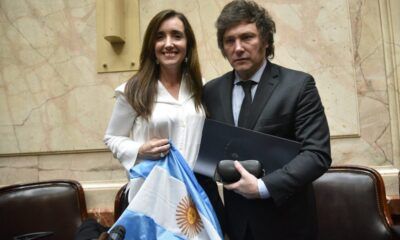INTERNACIONAL
Pope Francis rejects tradition, opts for humble wooden casket and burial outside Vatican
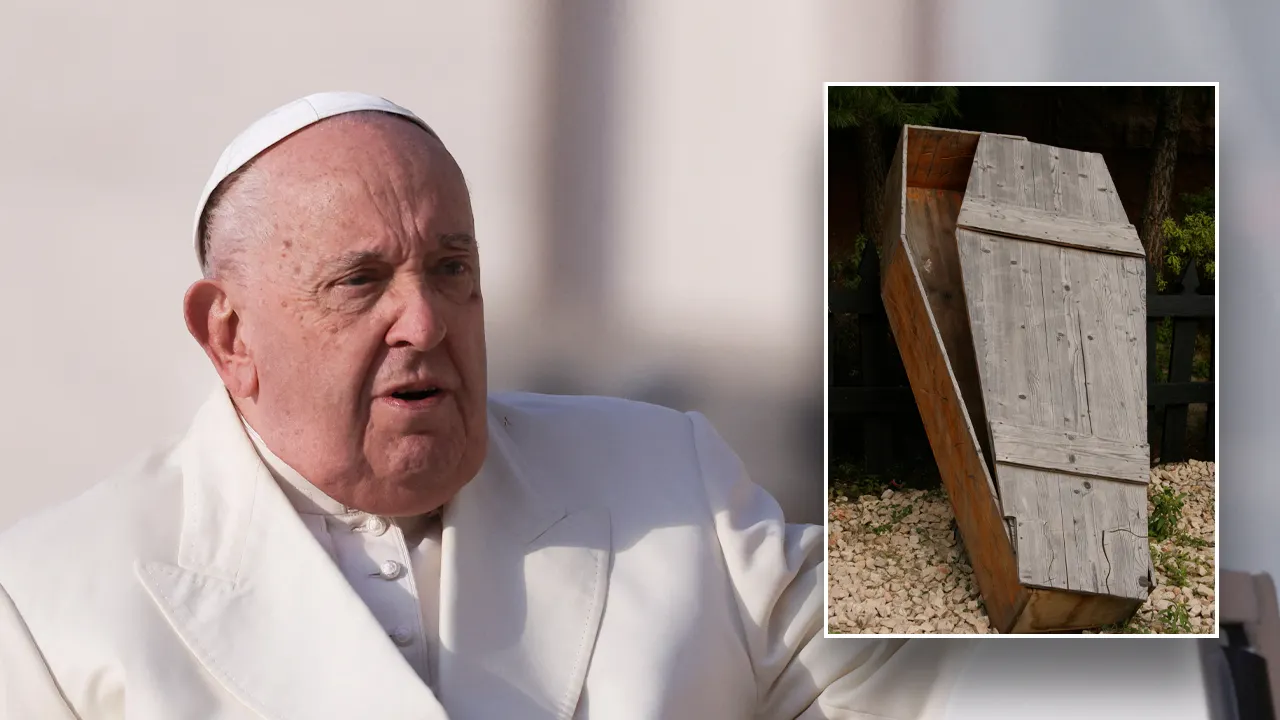
Pope Francis has announced that he will forgo the traditional, elaborate burial rites of his predecessors in a decision that may modernize the Catholic Church.
When the time comes, the 87-year-old pontiff has chosen to be laid to rest in a single wooden casket lined with zinc, breaking from the centuries-old practice of interring popes in three interlocking caskets made of cypress, lead, and oak.
The Vatican made the announcement on Wednesday, unveiling a new formal rite that reflects Francis’ vision of a more modest Church. Pope Francis approved a new edition of the liturgical rites in April this year and received the first copy of the printed volume on Nov. 4.
The new edition of the liturgical book was presented following its predecessor, the «editio typica» or «typical edition» of the «Ordo Exsequiarum Romani Pontificis» or «Order of Roman Pontifical Funerals.»
POPE GETS AN EARFUL FROM BELGIAN KING AND ABUSE VICTIMS OVER SCANDALS AND FAILURES TO RESPOND
Pope Francis announced this week that he was changing the funeral rites for the Vatican to be more simple and accessible. (Reuters, iStock)
The edition was approved in 1998 by Saint John Paul II and published in 2000. It was used in Saint John Paul II’s funeral rites in 2005 and in those of Pope Benedict XVI in 2023 with some adaptations.
«A second edition became necessary,» said Archbishop Diego Ravelli, Master of Apostolic Ceremonies in a release, «first of all because Pope Francis has requested it, as he himself has stated on several occasions of the need to simplify and adapt certain rites so that the celebration of the funeral of the Bishop of Rome may better expresses the faith of the Church in the Risen Christ.»
«The renewed rite also needed to emphasize even more that the funeral of the Roman Pontiff is that of a pastor and disciple of Christ and not of a powerful person of this world,» added the Archbishop.
ARGENTINA SEES DIPS IN POPULARITY IN POPE FRANCIS, NEW POLL FINDS
Additionally, the pontiff will become the first pope in more than a century to be buried outside the Vatican grounds. He has requested burial at Rome’s Basilica of St. Mary Major, a church he frequently visits to pray before and after his international trips.
The last pope to be buried outside the Vatican was Leo XIII in 1903, who rests at Rome’s Basilica of St. John Lateran.
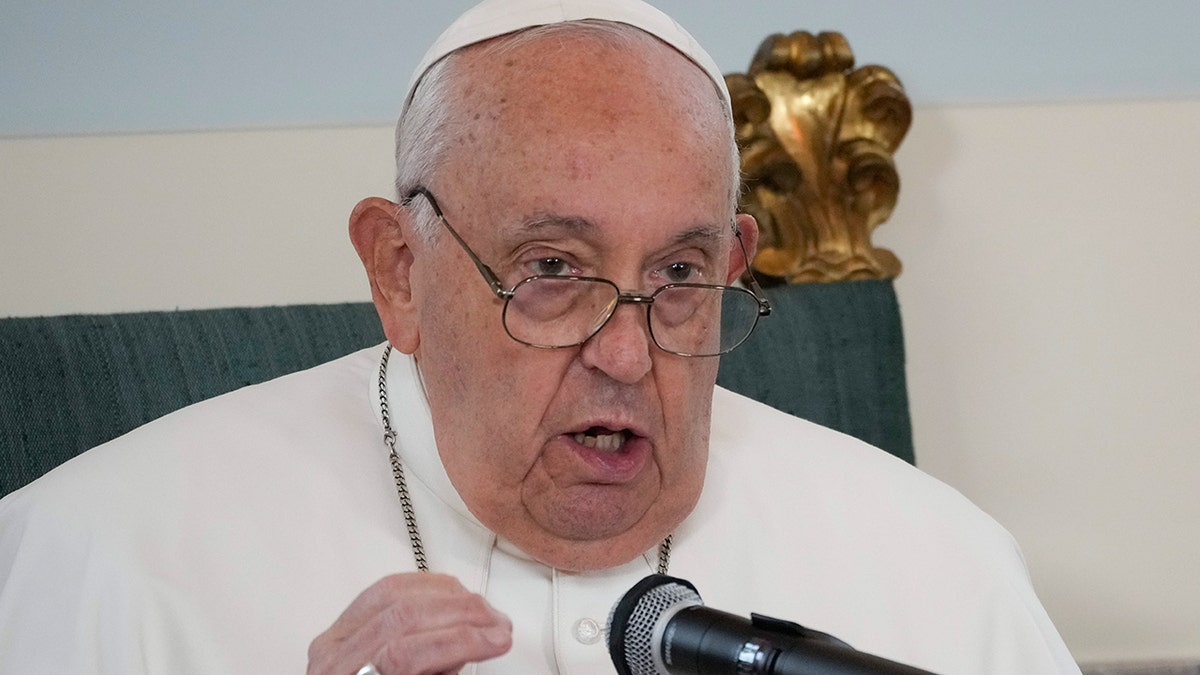
Pope Francis delivers his message during a meeting with the authorities and the civil society in the Grande Galerie of the Castle of Laeken, Brussels, Friday, Sept. 27, 2024. (AP Photo/Andrew Medichini)
Francis’ decision to reject the traditional three-casket practice—which creates an airtight seal and accommodates objects such as coins or papal documents—is part of his broader effort to simplify papal customs.
The late pontiff’s body will also not be displayed on a raised platform in St. Peter’s Basilica for public viewing, as has been customary. Instead, while visitors will still be able to pay their respects, his body will remain inside the casket with the lid removed.

A child kisses Pope Francis during the weekly general audience in Paul VI hall at the Vatican, August 21, 2024. (Reuters/Yara Nardi )
The pope, who will turn 88 next month, has made no secret of his health challenges, including knee and back pain that now require him to use a wheelchair.
Despite health limitations, he has maintained a busy schedule, including two grueling international trips in September and leading a significant month-long Vatican summit in October.
CLICK HERE TO GET THE FOX NEWS APP
Last year, Francis stated his desire to simplify the intricate and lengthy funeral rites traditionally used for popes.
Reuters contributed to this report.
INTERNACIONAL
Iran hiding missile, drone programs under guise of commercial front to evade sanctions
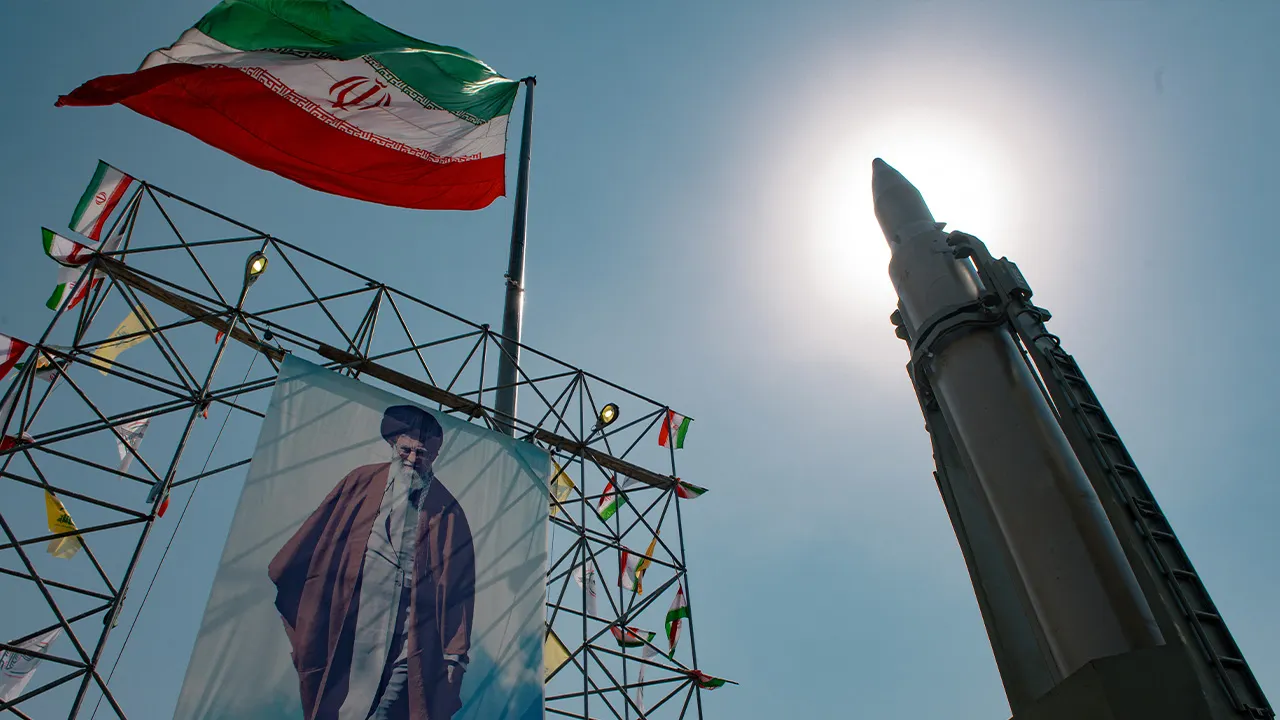
FIRST ON FOX — Iran has turned to its commercial sector to conceal its development of ballistic missiles in a move to circumvent international sanctions, turning private companies into fronts for its illicit military dealings.
Sources embedded within the Iranian regime and its Islamic Revolutionary Guard Corps (IRGC), and who are also affiliated with the Iranian resistance group called the People’s Mojahedin Organization of Iran, have collected months of information on how the civilian workforce is unknowingly fueling Tehran’s war machine.
According to a report by the National Council of Resistance of Iran (NCRI) exclusively obtained by Fox News Digital, civilian companies involved with oil, gas, petrochemicals and electronic components are susceptible to Tehran’s determination to bolster its missile and drone programs, especially as tensions with the West continue to mount over its aid to Russia’s war efforts in Ukraine as well as Iran’s direct and indirect attacks on Israel.
Heavy weapons, including ballistic missiles, are shown in Tehran, Iran, on Sept. 25, 2024. (Fatemeh Bahrami/Anadolu via Getty Images)
NETANYAHU CONFIRMS ISRAEL STRIKE AGAINST IRAN HIT NUKE PROGRAM DURING OCTOBER RETALIATORY STRIKES
The NCRI is sounding the alarm that at least three companies in Iran, including the Kaveh Mobadel Industrial Co., also known as Kaveh Machinery Co. (KMC), Sanaye Garma Gostar (SGG), also dubbed the Garma Gostar Industries, as well as the Sana Bargh Tavan Co., also known as SBT Electric, are tasked with producing items used to develop missile and drones.
«The Iranian regime’s missile program is not limited to the dozens of known military sites of the Aerospace Force of the IRGC or the Ministry of Defense,» Alireza Jafarzadeh, deputy director of the NCRI in the U.S., told Fox News Digital. «It has built a sophisticated network of commercial companies to cover up the true extent of Tehran’s missile and drone programs, as well as evading sanctions and accountability.»
Fox News Digital could not reach any of the mentioned companies for comment, but according to findings provided by embedded sources, these companies are not only subject to inspection by the Iranian Ministry of Defense but also hold contracts with the IRGC and the regime.
Despite evidence to suggest that while company executives are aware of how their businesses are being used to circumvent sanctions, the workers within the companies apparently remain uninformed despite dubious production demands.
The NCRI said it had obtained information indicating that certain items have entered the companies’ production lines that are incompatible with the business platforms.
One example highlighted in the NRCI report pointed to dozens of aluminum tanks allegedly being produced for the «dairy industry,» though the report also pointed out that «using aluminum for dairy purposes is prohibited.»
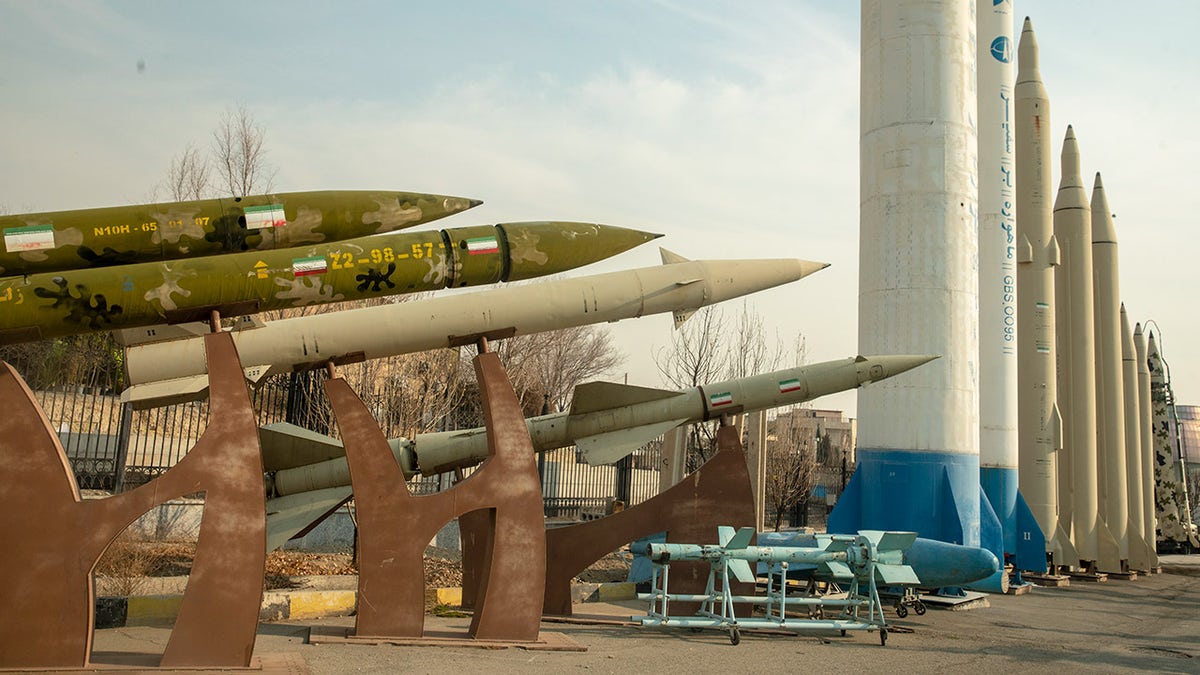
Iranian missiles are shown in a park in Tehran on Jan. 20, 2024. (Majid Saeedi/Getty Images)
IRAN MILITARY HEADS VOW ‘CRUSHING’ RESPONSE TO ISRAEL AS UN ATOMIC CHIEF SAYS NUKE SITES SHOULDN’T BE ATTACKED
While there is a strong indication that the Iranian regime is doing what it can to keep its efforts to circumvent sanctions secret, even within its own borders, some products being manufactured have likely not escaped notice.
The Sana Bargh Tavan Co., a collection of electronic factories situated in an area known as Pardis Technology Park and produces elevator drives, was reportedly discovered to be manufacturing «electronic boards for missiles and drones under the guise of other industrial products for the Islamic Revolutionary Guard Corps.»
The complex was also reported to be «under the control of the IRGC, and visitors’ access is regulated.»
Iran’s attempts to circumvent sanctions are nothing new, and despite heavy sanctions by the U.S., U.K. and the European Union (EU), Iran has continued to develop its nuclear and missile programs.

A banner depicting Iranian Supreme Leader Ayatollah Ali Khamenei is seen next to a ballistic missile in Baharestan Square in Tehran on Sept. 26, 2024. (Hossein Beris/Middle East Images/AFP via Getty Images)
IRAN VASTLY INCREASED NUCLEAR FUEL STOCKPILE AHEAD OF TRUMP RETURN, UN AGENCY FINDS
In October 2023, U.N. sanctions on Iran, which prohibited its ability to import or export missiles, drones and other related technology without prior U.N. Security Council approval under Resolution 2231, expired.
Though the sanctions were believed to have slowed Iran’s ability to develop its missile and drone programs, it did not halt it altogether.
«The Iranian regime has relied on the expansion of its missile program to make up for its near-zero air power and minimal air defense capabilities,» Jafarzadeh told Fox News Digital.
«The missile program serves two purposes for the regime: one is arming its regional proxies, such as Hezbollah, and the second, which is of strategic significance, is building missiles capable of carrying a nuclear warhead,» he added.
The U.S. last year deemed that Iran’s «missile program remains one of the greatest challenges to international nonproliferation efforts,» and it has since implemented several rounds of targeted sanctions.
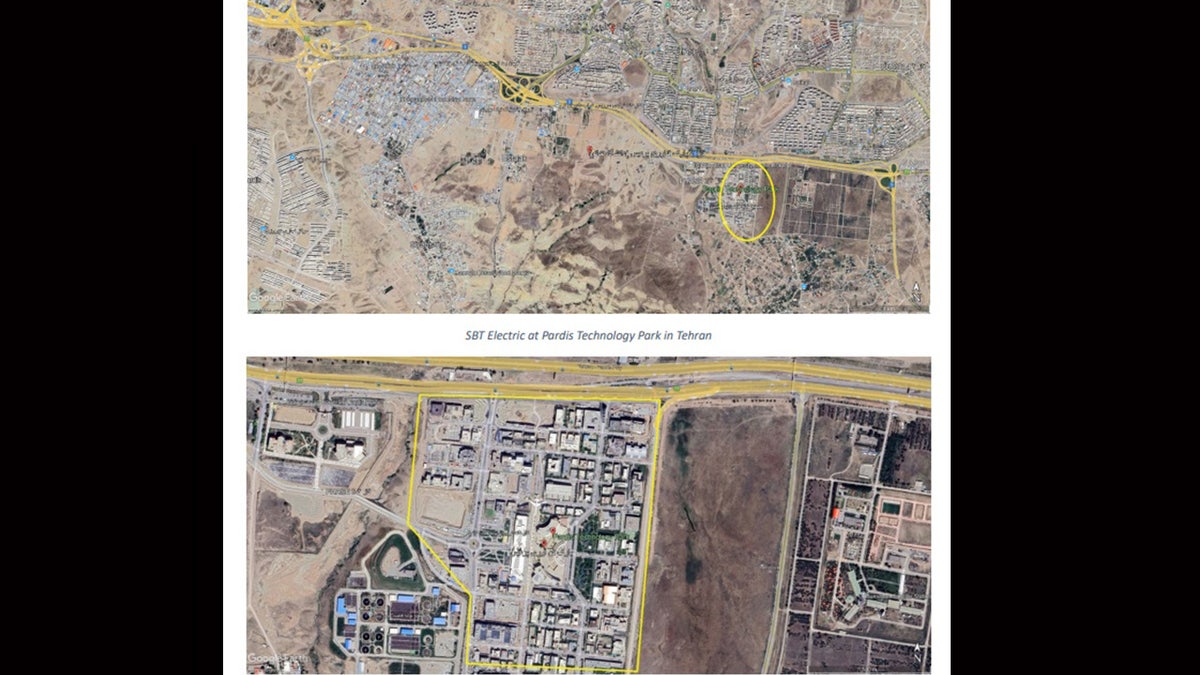
The Sana Bargh Tavan Co., east of Tehran, Iran, is shown in an image provided this month. The company reportedly produces not only elevator drives but also electronic boards for missiles and drones under the guise of other industrial products for the Islamic Revolutionary Guard Corps. (NCRI-US on behalf of the National Council of Resistance of Iran)
CLICK TO GET THE FOX NEWS APP
The U.K. and the EU on Monday announced fresh sanctions on Tehran over its support for Russia, targeting its shipping industry that is allegedly used to transfer drones and missiles.
Iran has repeatedly denied sending missiles or drones to Russia for its war against Kyiv, but the use of Iranian-made Shahed drones to target soldiers and civilians alike has been well documented in Ukraine.
-
ECONOMIA2 días ago
Gigante de Wall Street destacó a Argentina como un lugar para invertir
-
POLITICA3 días ago
Mónica Schlotthauer: “El presupuesto de Milei es claro: todo lo que recaudemos va a pagar la deuda»
-
POLITICA2 días ago
«Era por el celular», bajan el tono a la bravata del Gordo Dan sobre el «brazo armado de LLA» pero siguen los ruidos internos
-
POLITICA21 horas ago
Javier Milei, íntimo: la lealtad de los perros, su acercamiento al judaísmo y el sueño de conocer a Mick Jagger
-
INTERNACIONAL3 días ago
Cumbre del G20 en Río de Janeiro: Lula da Silva insta a avanzar en la reforma del «gobierno mundial» y en un impuesto a los supermillonarios
-
POLITICA1 día ago
De Cristina a Urribarri, de Boudou a De Vido: los funcionarios K condenados por corrupción













